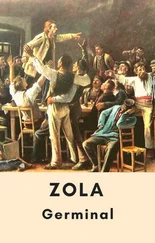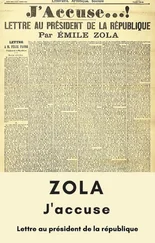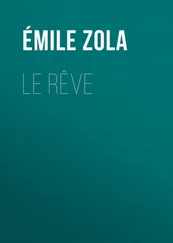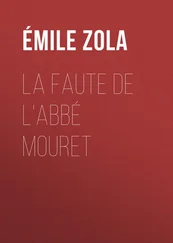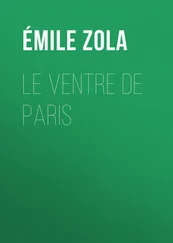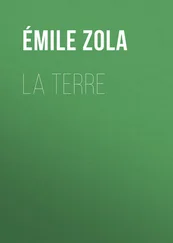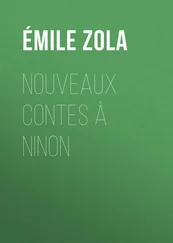Émile Zola - His Masterpiece
Здесь есть возможность читать онлайн «Émile Zola - His Masterpiece» — ознакомительный отрывок электронной книги совершенно бесплатно, а после прочтения отрывка купить полную версию. В некоторых случаях можно слушать аудио, скачать через торрент в формате fb2 и присутствует краткое содержание. Жанр: literature_19, foreign_antique, foreign_prose, на английском языке. Описание произведения, (предисловие) а так же отзывы посетителей доступны на портале библиотеки ЛибКат.
- Название:His Masterpiece
- Автор:
- Жанр:
- Год:неизвестен
- ISBN:нет данных
- Рейтинг книги:5 / 5. Голосов: 1
-
Избранное:Добавить в избранное
- Отзывы:
-
Ваша оценка:
- 100
- 1
- 2
- 3
- 4
- 5
His Masterpiece: краткое содержание, описание и аннотация
Предлагаем к чтению аннотацию, описание, краткое содержание или предисловие (зависит от того, что написал сам автор книги «His Masterpiece»). Если вы не нашли необходимую информацию о книге — напишите в комментариях, мы постараемся отыскать её.
His Masterpiece — читать онлайн ознакомительный отрывок
Ниже представлен текст книги, разбитый по страницам. Система сохранения места последней прочитанной страницы, позволяет с удобством читать онлайн бесплатно книгу «His Masterpiece», без необходимости каждый раз заново искать на чём Вы остановились. Поставьте закладку, и сможете в любой момент перейти на страницу, на которой закончили чтение.
Интервал:
Закладка:
Claude listened to the story with his usual air of contempt for women. Suddenly, however, as the gentleman rose and went out after whispering in her ear, Irma Becot, after watching him disappear, bounded from her seat with the impulsiveness of a school girl, in order to join Fagerolles, beside whom she made herself quite at home, giving him a smacking kiss, and drinking out of his glass. And she smiled at the others in a very engaging manner, for she was partial to artists, and regretted that they were generally so miserably poor. As Jory was smoking, she took his cigarette out of his mouth and set it in her own, but without pausing in her chatter, which suggested that of a saucy magpie.
‘You are all painters, aren’t you? How amusing! But why do those three look as if they were sulking. Just laugh a bit, or I shall make you, you’ll see!’
As a matter of fact, Sandoz, Claude, and Mahoudeau, quite taken aback, were watching her most gravely. She herself remained listening, and, on hearing her companion come back, she hastily gave Fagerolles an appointment for the morrow. Then, after replacing the cigarette between Jory’s lips, she strode off with her arms raised, and making a very comical grimace; in such wise that when the gentleman reappeared, looking sedate and somewhat pale, he found her in her former seat, still looking at the same engraving in the newspaper. The whole scene had been acted so quickly, and with such jaunty drollery, that the two sergeants who sat nearby, good-natured fellows both of them, almost died of laughter as they shuffled their cards afresh.
In fact, Irma had taken them all by storm. Sandoz declared that her name of Becot was very well suited for a novel; Claude asked whether she would consent to pose for a sketch; while Mahoudeau already pictured her as a Paris gamin, a statuette that would be sure to sell. She soon went off, however, and behind the gentleman’s back she wafted kisses to the whole party, a shower of kisses which quite upset the impressionable Jory.
It was five o’clock, and the band ordered some more beer. Some of the usual customers had taken possession of the adjacent tables, and these philistines cast sidelong glances at the artists’ corner, glances in which contempt was curiously mingled with a kind of uneasy deference. The artists were indeed well known; a legend was becoming current respecting them. They themselves were now talking on common-place subjects: about the heat, the difficulty of finding room in the omnibus to the Odeon, and the discovery of a wine-shop where real meat was obtainable. One of them wanted to start a discussion about a number of idiotic pictures that had lately been hung in the Luxembourg Museum; but there was only one opinion on the subject, that the pictures were not worth their frames. Thereupon they left off conversing; they smoked, merely exchanging a word or a significant smile now and then.
‘Well,’ asked Claude at last, ‘are we going to wait for Gagniere?’
At this there was a protest. Gagniere was a bore. Besides, he would turn up as soon as he smelt the soup.
‘Let’s be off, then,’ said Sandoz. ‘There’s a leg of mutton this evening, so let’s try to be punctual.’
Each paid his score, and they all went out. Their departure threw the cafe into a state of emotion. Some young fellows, painters, no doubt, whispered together as they pointed at Claude, much in the same manner as if he were the redoubtable chieftain of a horde of savages. Jory’s famous article was producing its effect; the very public was becoming his accomplice, and of itself was soon to found that school of the open air, which the band had so far only joked about. As they gaily said, the Cafe Baudequin was not aware of the honour they had done it on the day when they selected it to be the cradle of a revolution.
Fagerolles having reinforced the group, they now numbered five, and slowly they took their way across Paris, with their tranquil look of victory. The more numerous they were, the more did they stretch across the pavement, and carry away on their heels the burning life of the streets. When they had gone down the Rue de Clichy, they went straight along the Rue de la Chaussee d’Antin, turned towards the Rue de Richelieu, crossed the Seine by the Pont des Arts, so as to fling their gibes at the Institute, and finally reached the Luxembourg by way of the Rue de Seine, where a poster, printed in three colours, the garish announcement of a travelling circus, made them all shout with admiration. Evening was coming on; the stream of wayfarers flowed more slowly; the tired city was awaiting the shadows of night, ready to yield to the first comer who might be strong enough to take her.
On reaching the Rue d’Enfer, when Sandoz had ushered his four friends into his own apartments, he once more vanished into his mother’s room. He remained there for a few moments, and then came out without saying a word, but with the tender, gentle smile habitual to him on such occasions. And immediately afterwards a terrible hubbub, of laughter, argument, and mere shouting, arose in his little flat. Sandoz himself set the example, all the while assisting the charwoman, who burst into bitter language because it was half-past seven, and her leg of mutton was drying up. The five companions, seated at table, were already swallowing their soup, a very good onion soup, when a new comer suddenly appeared.
‘Hallo! here’s Gagniere,’ was the vociferous chorus.
Gagniere, short, slight, and vague looking, with a doll-like startled face, set off by a fair curly beard, stood for a moment on the threshold blinking his green eyes. He belonged to Melun, where his well-to-do parents, who were both dead, had left him two houses; and he had learnt painting, unassisted, in the forest of Fontainebleau. His landscapes were at least conscientiously painted, excellent in intention; but his real passion was music, a madness for music, a cerebral bonfire which set him on a level with the wildest of the band.
‘Am I in the way?’ he gently asked.
‘Not at all; come in!’ shouted Sandoz.
The charwoman was already laying an extra knife and fork.
‘Suppose she lays a place for Dubuche, while she is about it,’ said Claude. ‘He told me he would perhaps come.’
But they were all down upon Dubuche, who frequented women in society. Jory said that he had seen him in a carriage with an old lady and her daughter, whose parasols he was holding on his knees.
‘Where have you come from to be so late?’ asked Fagerolles of Gagniere.
The latter, who was about to swallow his first spoonful of soup, set it in his plate again.
‘I was in the Rue de Lancry – you know, where they have chamber music. Oh! my boy, some of Schumann’s machines! You haven’t an idea of them! They clutch hold of you at the back of your head just as if somebody were breathing down your back. Yes, yes, it’s something much more immaterial than a kiss, just a whiff of breath. ‘Pon my honour, a fellow feels as if he were going to die.’
His eyes were moistening and he turned pale, as if experiencing some over-acute enjoyment.
‘Eat your soup,’ said Mahoudeau; ‘you’ll tell us all about it afterwards.’
The skate was served, and they had the vinegar bottle put on the table to improve the flavour of the black butter, which seemed rather insipid. They ate with a will, and the hunks of bread swiftly disappeared. There was nothing refined about the repast, and the wine was mere common stuff, which they watered considerably from a feeling of delicacy, in order to lessen their host’s expenses. They had just saluted the leg of mutton with a hurrah, and the host had begun to carve it, when the door opened anew. But this time there were furious protests.
‘No, no, not another soul! Turn him out, turn him out.’
Читать дальшеИнтервал:
Закладка:
Похожие книги на «His Masterpiece»
Представляем Вашему вниманию похожие книги на «His Masterpiece» списком для выбора. Мы отобрали схожую по названию и смыслу литературу в надежде предоставить читателям больше вариантов отыскать новые, интересные, ещё непрочитанные произведения.
Обсуждение, отзывы о книге «His Masterpiece» и просто собственные мнения читателей. Оставьте ваши комментарии, напишите, что Вы думаете о произведении, его смысле или главных героях. Укажите что конкретно понравилось, а что нет, и почему Вы так считаете.


